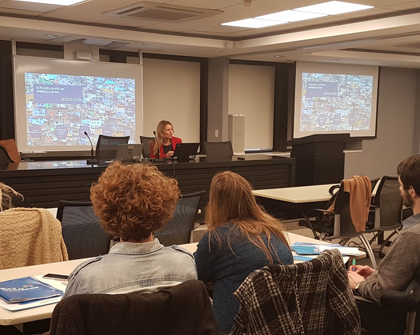After undertaking over 20,000 exclusive surveys in 18 countries in Latin America and the Caribbean, the initiative organized by the Institute for the Integration of Latin America and the Caribbean (INTAL) and Latinobarómetro is continuing to monitor public opinion on the issues that are most sensitive to public policy design so as to understand what Latin Americans think about them. These issues include democracy, regional integration, living conditions, infrastructure, nation branding, innovation, services, citizen security, and the environment, among others.
The study, which was published in October 2016, crosses “hard data” on the region’s economies with people’s opinions to reveal patterns, analogies, and differences. Its findings include the fact that 77% of Latin Americans support economic integration and 60% support political integration, although this support is much broader in countries where there is greater export concentration, which reflects the fact that demand for integration is greatest precisely where it is needed the most.
The partnership between INTAL and Latinobarómetro includes a visualization platform (link in Spanish) for the community, which the initiative is inviting to rethink integration in broader terms. Traditional advantages and disadvantages may be compensated for both in people’s opinions and in reality by advantages and disadvantages concerning environmental, social, and technological factors or through improvements to logistics.
Among other factors, the study reveals how nation-branding strategies influence exports, how long it takes to become a favorite in a given market, and how far improvements to reputation actually affect exports. The dynamic map of integration covers multiple dimensions that range from which sectors are most likely to receive foreign investment to how willing people are to pay more for sustainable products.
In the upcoming issues of INTAL Connection, we will be presenting the results of the study in more detail and discussing its implications for the design of integration policy.






